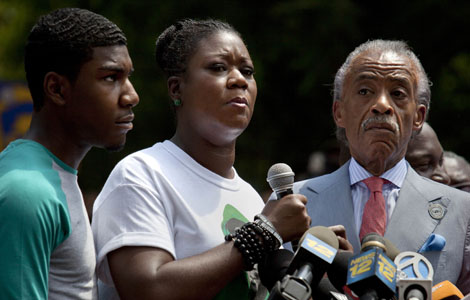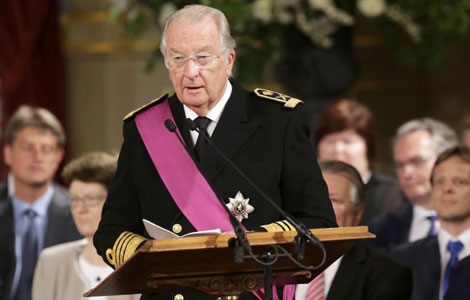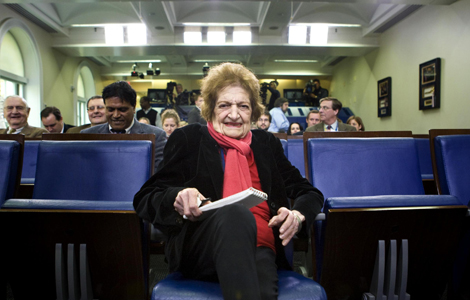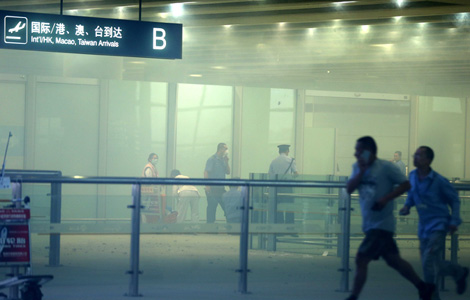Portuguese govt to stay in power for crisis
Updated: 2013-07-22 07:57
(Xinhua)
|
||||||||
LISBON -- Portuguese President Anibal Cavaco Silva on Sunday said the coalition government will stay in power until the end of their term in 2015, rejecting calls for snap elections to resolve a political crisis eroding Lisbon's credibility with lenders and investors.
In a televised nationwide speech Presient Cavaco Silva said that a snap election will not solve the current problem Portugal is facing but rather have a negative impact on an early end of the country's economic crisis.
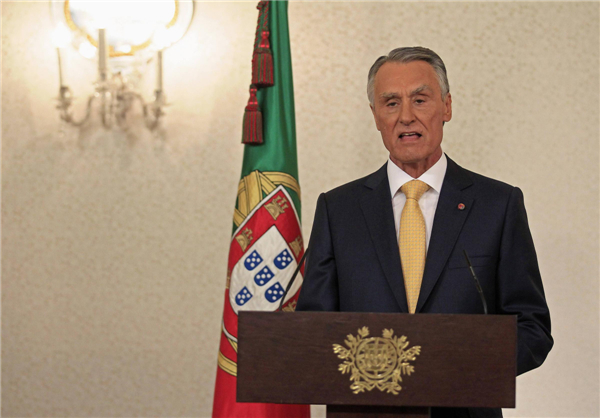 |
|
Portugal's President Anibal Cavaco Silva speaks during a news conference at Belem presidential palace in Lisbon July 21, 2013. Silva said on Sunday he decided to keep the centre-right coalition government at the helm to help end a weeks-old political crisis and keep an international bailout on track.[Photo/Agencies] |
Keeping the current government in power is the best option, since the coalition government failed to reach consensus on a mid-term nation salvation accord with main opposition Socialist Party proposed by the president earlier this month, Cavaco Silva said.
He added that hopes the coalition government will strengthen their cohesion in solidarity to fulfill their functioning until the end of their term of office in 2015.
The president said the coalition government led by Prime Minister Pedro Passos Coelho would outline their policies on the country's politics and economy over the next two years in parliament.
Portugal encountered a severe political crisis when Finance Minister Vitor Gaspar resigned on July 1 and Foreign Minister Paulo Portas followed suit the next day.
The crisis was later defused thanks to the agreement reached between the two parties of Prime Minister Passos Coelho's PSD or the Socialist Democratic Party and CDS-PP or the People's Party headed by Foreign Minister Portas in the coalition government.
In a televised nationwide speech on July 10, Cavaco Silva urged the three main political parties -- the PSD, CDS-PP and the Socialist Party -- to reach a mid-term national salvation accord to ensure a political stability before the expiry of a bailout program of international lenders of troika in June next year.
The three main political parties failed to reached a consensus on the national salvation accord on Friday after eight rounds of negotiations.
Portugal is implementing harsh austerity measures in return for the bailout of 78 billion euros ($101 billion) from the troika, comprising the European Union, the International Monetary Fund and the European Central Bank. The government's move has triggered widespread protests across the country in recent months and also the sharp differences among the country's political parties.
Most Viewed
Editor's Picks

|

|

|

|

|

|
Today's Top News
Guangdong to probe airport bomber's allegations
Police meets GSK representative after scandal
US protests demand 'justice for Trayvon'
6.6-magnitude quake hits NW China
Minister rules out stimulus package
Top Chinese admiral to visit US this year
Victory improves Abe's hand
Yuan influence on the rise worldwide
US Weekly

|

|

